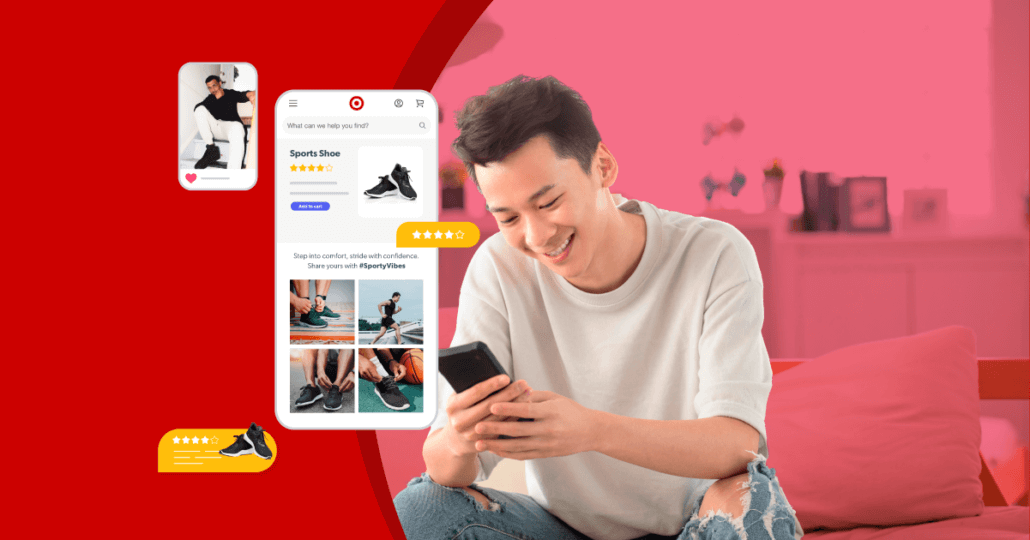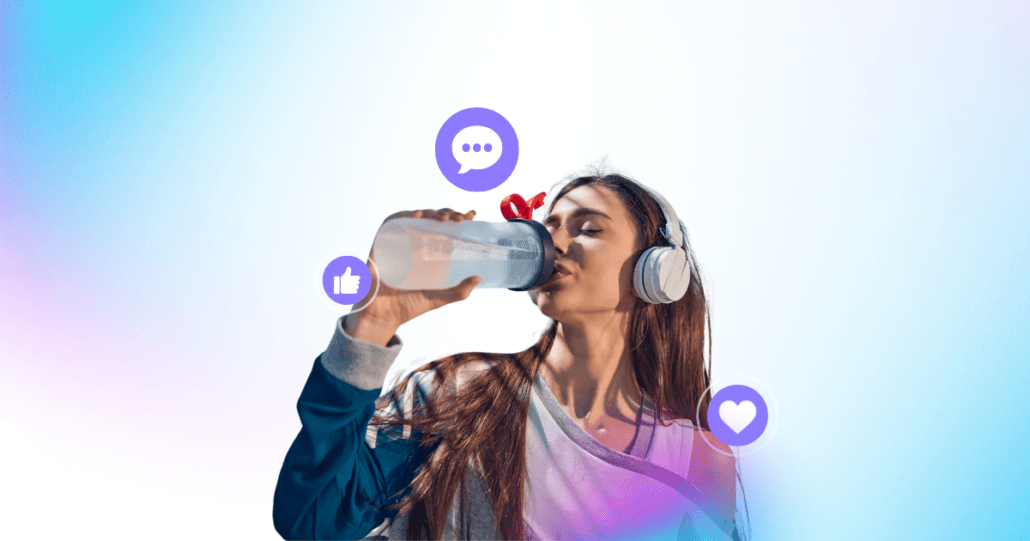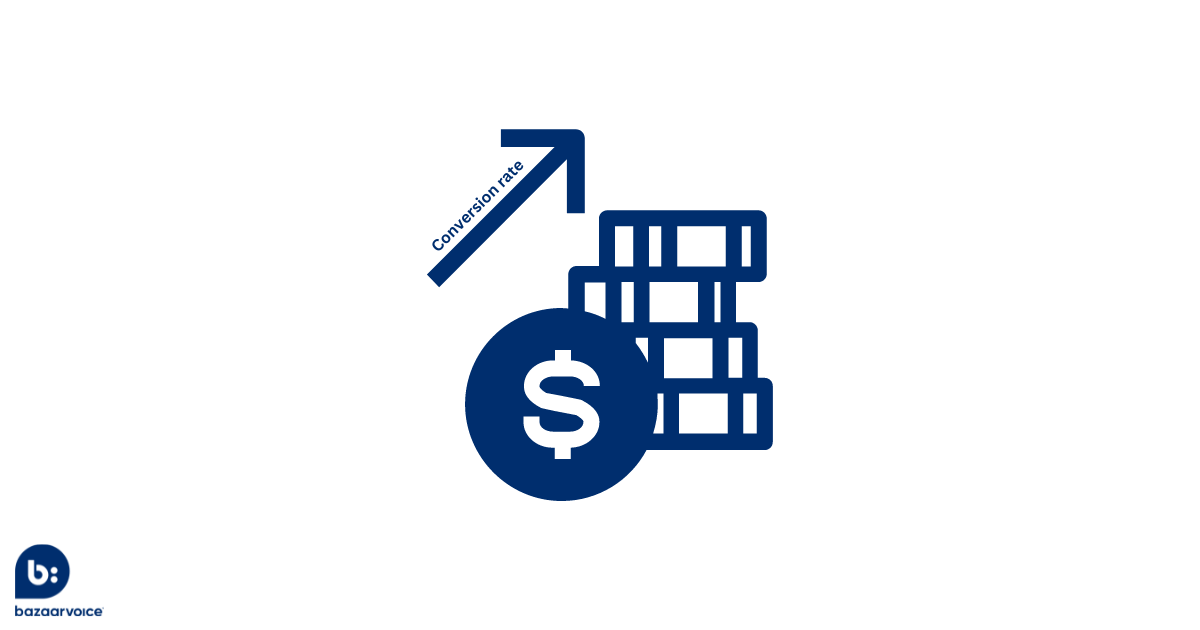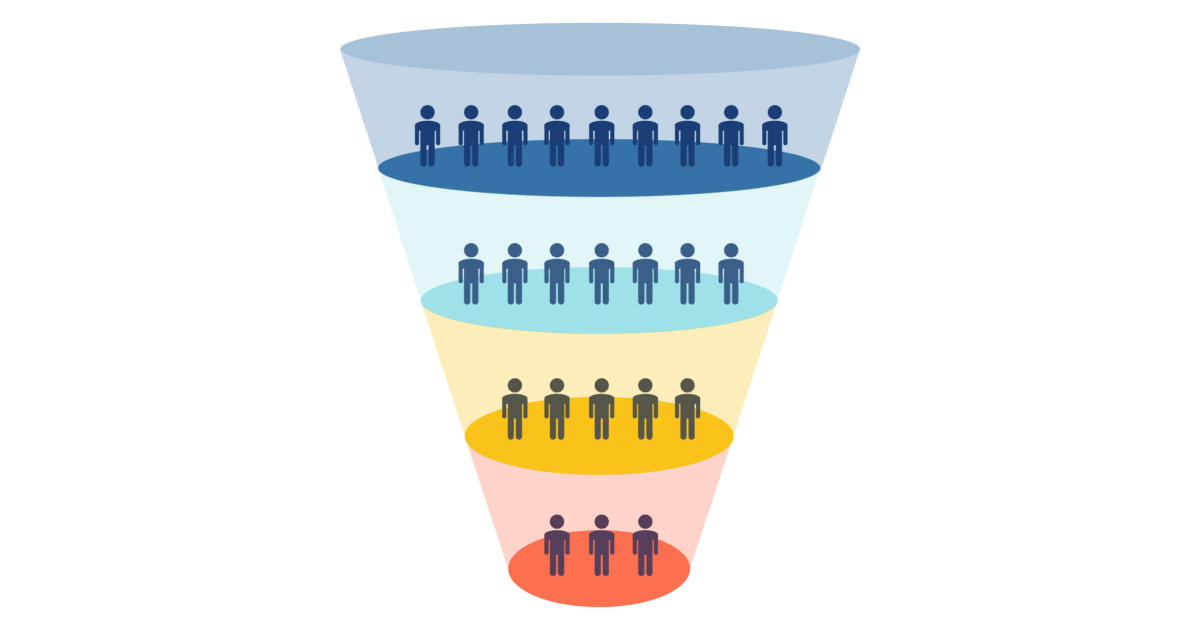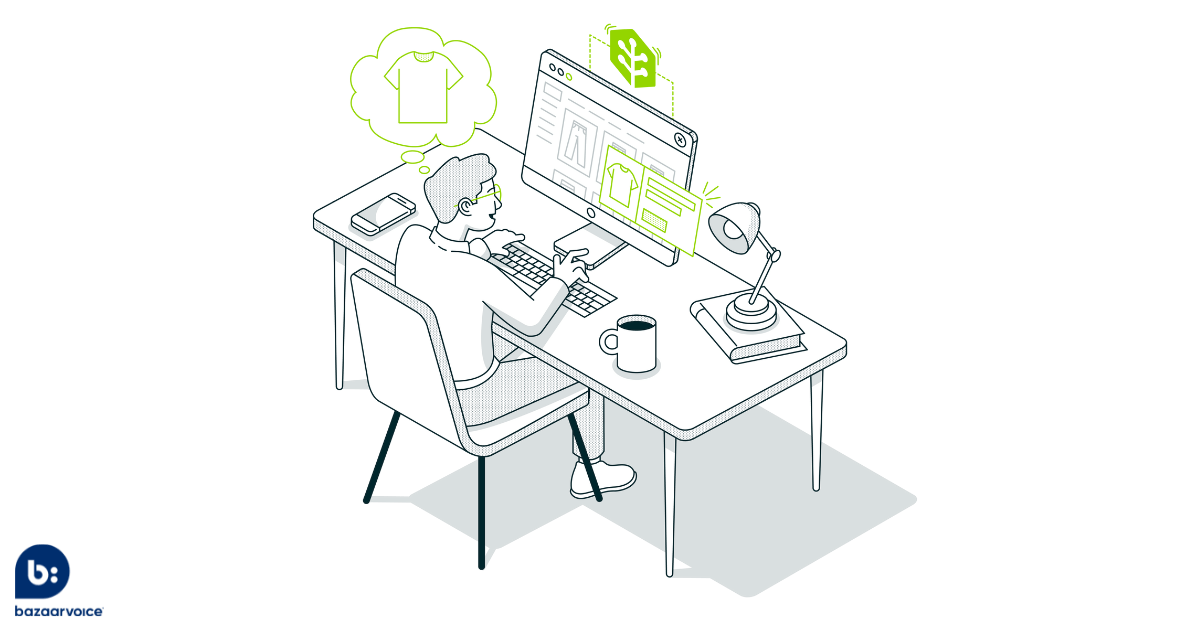February 16, 2024
In the world of e-commerce, competition is only one click away. Your ability to sweeten the deal can very well mean the difference between a browser that bounces and a customer who engages. This means you have to set effective honey traps — lead magnets — that attract shoppers, provide a pathway to nurturing them, and set the stage for lasting relationships.
Let’s channel your inner Don Corleone and learn how you can make consumers an offer they won’t refuse.
Chapters:
- What is a lead magnet?
- What makes a good lead magnet in e-commerce?
- 10 lead magnet ideas for your e-commerce website
- Optimize your e-commerce website for better lead magnet results
What is a lead magnet?
A lead magnet is simply a trade where you offer something valuable in exchange for contact information or another action.
Let’s paint a picture for you: you’re browsing online, not quite ready to buy, just casually looking. Then, something catches your eye — a guide on how to choose the perfect pair of running shoes, offered for free. All it asks for in return is your email. That’s a lead magnet in action, a sweet little nudge designed to turn you from a casual browser into an engaged potential customer.
And once you have that information, you’ll do something with it to further engage the leads and turn them into paying customers. So this interaction is also the first hello in what you hope will be a long conversation. It’s where you start to build trust and show your value to potential customers.
What makes a good lead magnet in e-commerce?
For starters, your lead magnet should offer immediate value. People have to be able to use it right away so they can experience the benefits of engaging with your brand without delay. This immediate gratification will satisfy the desire for quick rewards (because who doesn’t love those?) and make a positive first impression.
Ideally, what you offer should also solve a problem that your audience is facing. A lead magnet that tackles a real issue provides value and also positions your brand as helpful and authoritative. For example, a “5-Minute Meals for Busy Parents” recipe book from an online food store hits right at the heart of time-crunched families.
Lead magnets should showcase your expertise or the quality of your products. It’s an opportunity to demonstrate why your brand is trustworthy and knowledgeable. Say, a lead magnet like “The Complete Guide to Sustainable Fashion” from an eco-conscious clothing brand can establish thought leadership in that space.
Finally, the best lead magnets encourage future engagement. It doesn’t just end with the download or the discount but rather marks the start of a relationship.
10 lead magnet ideas for your e-commerce website
There’s a lot of room for creativity where lead magnets are concerned, but we have the top 10 ideas that are tried and tested to get people through your digital door.
1. Discount codes
It’s a classic for a reason. Discounts are simple, yet effective — a percentage off, a fixed amount discount, or exclusive deals in exchange for an email sign-up or another small action. Because of the instant value they provide, discounts make the decision to engage with a brand a no-brainer for most shoppers.
Why they work:
- Everyone loves to save money. A discount code taps into this universal appeal, offering immediate savings on future purchases
- For those on the fence because they never bought from your brand before, a discount can be the incentive they need to make their first purchase
Best practices:
- Make it exclusive. Your discount should feel special. If products on your website are always on sale, this type of offer could lose its appeal
- Set a time limit. Create a sense of urgency and encourage quick action by making the discount available for a limited time
2. Personalized consultations
Personalization is a lead magnet necessity. Personalized consultations are a golden opportunity to connect with your audience on a deeper level. They allow you to demonstrate your expertise, understand your customers’ unique needs, and provide tailored advice that can make a real difference in their decision-making process.
Why they work:
- Engaging directly with customers establishes brand trust, an essential ingredient for any successful relationship.
- By tailoring advice to each individual’s situation, you show a level of care and attention that generic information just can’t match
- A consultation is an active, engaging process. It invites potential customers to interact with your brand, creating a memorable experience
Best practices:
- Streamline scheduling: Use an easy-to-navigate booking system to minimize friction in setting up consultations. The simpler it is to book, the more likely people are to go for it
- Prepare and personalize: Before each consultation, gather information about the customer’s needs to offer the most relevant and helpful advice
- Follow-up: After the consultation, send a personalized email summarizing the advice you gave and suggesting next steps. A follow-up keeps the conversation going and nudges consumers towards a purchase based on the problems you identified
3. Early or exclusive access
There’s plenty of ways to give your potential customers the VIP treatment — chief among them, access to early sales and product drops. This strategy plays on the human desire to be part of an elite group and enjoy privileges that aren’t available to the general public.
Why they work:
- Knowing they have access to something others don’t elevates the customer’s perception of the value you’re offering
- The wait for early or exclusive access to products or sales can create buzz and excitement around your brand
- Customers who receive special treatment are more likely to feel a stronger connection to your brand, helping you build that oh-so-coveted brand loyalty
Best practices:
- Clearly define the offer: Make sure your audience understands what they’re getting access to and why it’s valuable. Whether it’s a pre-sale, a limited edition product, or early access to content, the offer should be compelling
- Deliver on your promise: Don’t falter. The early or exclusive access experience should be smooth and rewarding. Any hiccups can damage trust and diminish the perceived value of your offer
4. Free shipping
The people have spoken — they want free shipping. So much so that 62% of consumers won’t buy from a retailer if they don’t provide that option. Offering potential buyers the chance to unlock free shipping removes one of the biggest hurdles to completing an online purchase (added costs) and appeals to virtually every shopper’s desire to get more value out of their purchase.
Why they work:
- High shipping costs are the top reason for abandoning shopping carts. Eliminating this barrier can significantly increase your conversion rates
- Shoppers perceive free shipping as an added value to their purchase, making the deal seem much sweeter (there’s that honey again)
- Often, free shipping is tied to a minimum purchase amount, which can encourage customers to add more items to their cart to qualify and increase average order value
Best practices:
- Set clear thresholds: If your free shipping offer requires a minimum purchase, make sure this threshold is clearly communicated and easily achievable
- Promote widely: Highlight your free shipping offer on your homepage, product pages, and during the checkout process. Also, mention it in your marketing emails and social media channels
- Test and analyze: Experiment with different thresholds for free shipping to find the sweet spot that increases average order value without hurting your margins
5. Free samples
Who doesn’t love free stuff? Offering free samples as your lead magnet is a tried-and-true method to introduce potential customers to your products with no strings attached. This approach not only allows customers to test and fall in love with your products but also demonstrates your confidence in the quality of what you’re selling.
With a product sampling marketing campaign you can even ask consumers to provide user-generated content (reviews, images, or videos) in exchange for the samples. Using UGC to populate your social media feeds and product pages is the best way to generate consumer trust in your brand and lift conversions, so there’s a lot to gain here besides contact information.
Why they work:
- Free samples allow customers to try before they buy, reducing the perceived risk associated with buying new products
- By getting your products into the hands of potential customers, you’re increasing brand awareness and the likelihood of future purchases
- Offering something for free can create a positive association with your brand, fostering goodwill and a sense of reciprocity
Best practices:
- Easy redemption: The process to claim a free sample should be straightforward and require minimal effort from the customer
- Collect feedback: Use the opportunity to gather feedback on the sampled products and get your hands on valuable insights for product development and marketing strategies.
- Follow-up: After sending out the samples, follow-up with an email offering a discount on the full-sized product to encourage a purchase
6. Contests and giveaways
The anticipation of possibly winning something cool is thrilling. That excitement is precisely what makes contests and giveaways such effective lead magnets. They speak to people’s natural love for competition and the allure of getting something for free.
And you win too. By offering a prize that your target audience finds irresistible, you can significantly increase engagement, grow your email list, and boost social media followers, all while creating a fun experience for your audience.
Why they work:
- The interactive nature of contests and giveaways encourages active participation from your audience
- Participants often share contests with friends and family, which helps increase your brand’s visibility and reach
- You can make following you on social media a mandatory requirement to enter the contest, so you can grow your presence on these channels while generating leads
Best practices:
- Leverage user-generated content: Encourage participants to share their own content related to the contest (e.g., photos using your product) to increase engagement and generate content for your brand
- Reach out to every participant: After the contest, send a thank you email to all participants and offer them a consolation prize, such as a discount code, to encourage them to make a purchase
7. Interactive quizzes
Quizzes are the best of both worlds. These lead magnets combine entertainment with personalization, offering instant gratification in the form of results that feel tailor-made. They keep potential customers engaged in a unique way and provide valuable insights into their preferences and behaviors. What’s not to love?
Why they work:
- Quizzes keep users clicking, engaged, and interested from start to finish, significantly increasing the time spent interacting with your brand
- With personalized results, quizzes make every participant feel seen and understood, enhancing their connection to your brand (and likelihood they’ll buy something based on the outcome of the quiz)
- Quizzes are an effective tool for collecting zero-party data on your audience’s preferences and needs, which can inform future marketing strategies. With the collapse of third-party cookies upon us, this is a welcomed benefit.
Best practices:
- Shareable results: Make the results easily shareable on social media to increase the participant’s engagement and extend the quiz’s reach
- Follow-up with personalized recommendations: Use the data collected from the quiz to follow up with personalized product recommendations or content, turning engagement into conversion
- Optimize for all devices: Your quiz should be mobile-friendly to get users to engage with it on their smartphones (where they spend a lot of time. Seriously)
8. Exclusive members club
We already talked about the allure of exclusivity, but you know what’s better than early access to a product? Being part of an exclusive members club that continuously offers perks, special deals, and insider information.
This type of lead magnet elevates the concept of exclusivity to a whole new level, as it creates a sense of belonging to a special community. It’s not just a one-time offer — it’s ongoing value.
Why they work:
- Humans are complex creatures, but when it comes to belonging, they’re actually quite simple. People love feeling like they’re part of an exclusive group, and members-only clubs deliver on that innate desire for community and recognition
- Contrary to a one-off download or discount, a members club offers continuous reasons for shoppers to engage with your brand
- Members are more likely to become repeat, loyal customers, thanks to the ongoing perks and the emotional investment in the brand
Best practices:
- Update, update, update. Regularly add new perks to keep the membership exciting and valuable. Stagnation is the enemy of engagement (Confucius didn’t say it, but he might as well have)
- Exclusive, but inclusive: While the club should feel exclusive, make joining achievable for your target audience – it’s a lead magnet, after all
- Communicate regularly: Use email newsletters or a dedicated members area on your website to keep people informed about new perks and offers
9. Virtual events
Virtual events have surged in popularity, offering a unique way to connect with audiences from the comfort of their own homes. They entertain and inform, drawing in people with the promise of unique insights, valuable knowledge, and interactive experiences that they can’t get anywhere else.
Why they work:
- Virtual events allow for real-time interaction between the guests, moderators, and viewers, making the latter feel more connected to your brand
- They can attract a broad audience by offering valuable insights, entertainment, or access to experts, depending on the event’s focus
Best practices:
- Promote early and often: Use all your channels — email, social media, your website — to build anticipation and encourage sign-ups well in advance of the event
- Offer exclusive content: Make sure the event provides unique value that can’t be found elsewhere, such as live Q&A sessions, behind-the-scenes tours, or first looks at new products
- Make it accessible: Ensure the platform you choose is user-friendly and accessible to people with varying levels of tech-savviness
- Interact post-event: After the event, send out an email to attendees with key takeaways, additional resources, and a CTA, such as a special offer or invitation to sign up for your newsletter
- Record and repurpose: Not everyone who’s interested will be able to attend live. Plus, you’ve put a lot of effort into producing the event, so you should milk every drop of content out of it. Offer a recording to those who registered but couldn’t attend, and consider using parts of the event in future marketing materials
10. Free trials
Subscription businesses might find it harder to send out samples of their products. Free trials solve this issue, as they allow potential customers to test your service in all its glory. Just like with samples, free trials are effective because they remove the risk from the customer’s decision-making process. People get to see firsthand if your service fits their needs and lifestyle before committing financially.
Why they work:
- Customers can try out your service without any financial commitment, making them more likely to give it a go
- Unlike a demo or a sneak peek, a free trial gives customers access to the entire service, allowing them to experience its full benefits
- By offering a free trial, you’re expressing confidence in the value of your service, which in turn builds trust with potential subscribers
Best practices:
- Clear communication: Make the terms of the free trial clear, including its duration and what happens when the trial ends. Transparency is key to trust
- Engage during the trial: Use the trial period to engage with users, offering tips on getting the most out of the service and highlighting features they might not discover on their own
- Seamless transition to paid: Make it easy for trial users to become paying subscribers, with a simple upgrade process and a compelling reason to continue beyond the trial
Optimize your e-commerce website for better lead magnet results
Your lead magnets are the hook that draws people in, but your website is where the magic really happens. It’s one of the places where initial interest turns into lasting relationships and, ultimately, sales.
By focusing on both attracting customers with compelling lead magnets and providing an optimized online shopping experience, you lay the groundwork for e-commerce success.
So, don’t let the momentum stop with the honey. Continue your journey to e-commerce excellence by ensuring your website is as optimized and as effective as your lead magnets.


